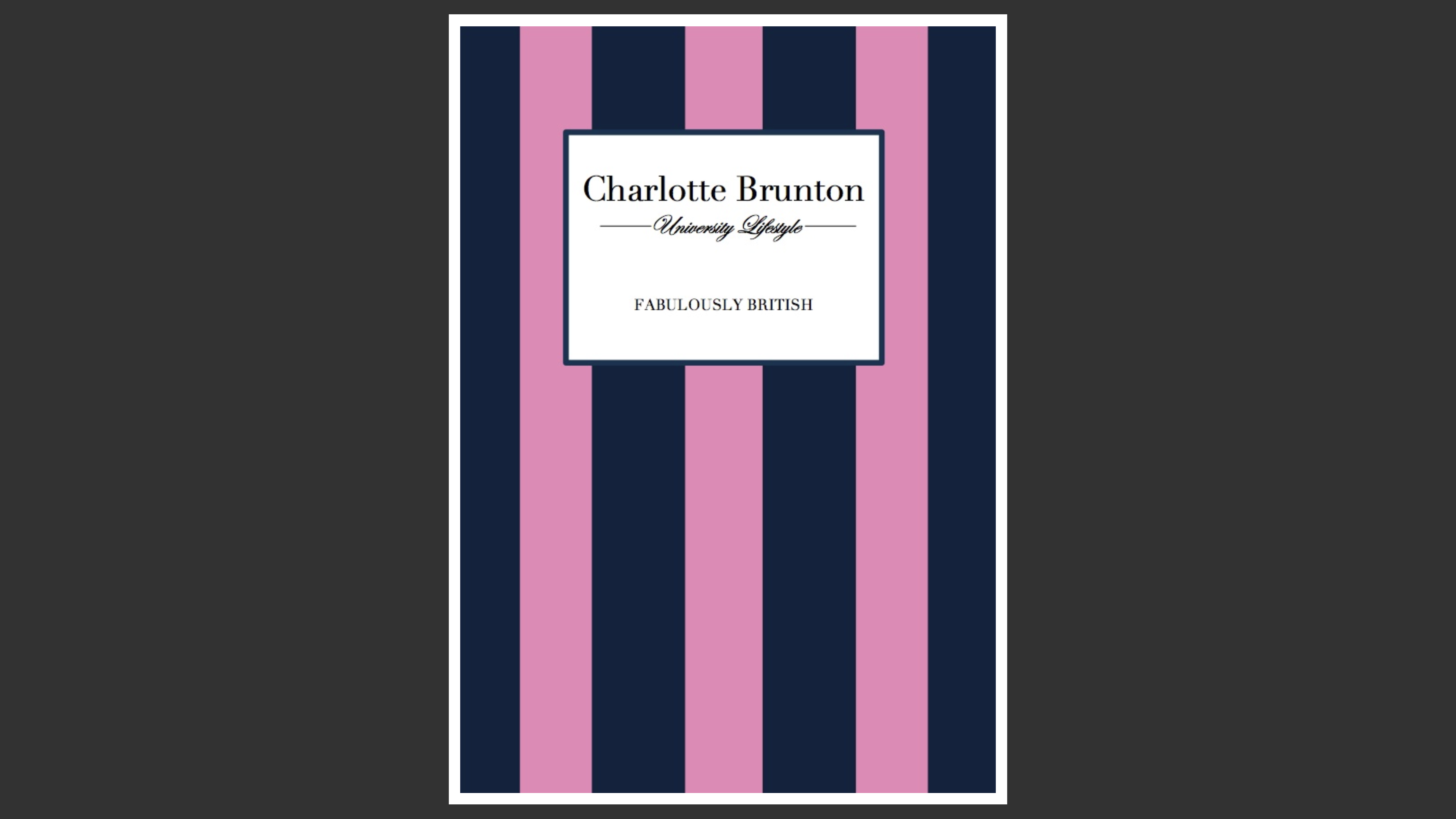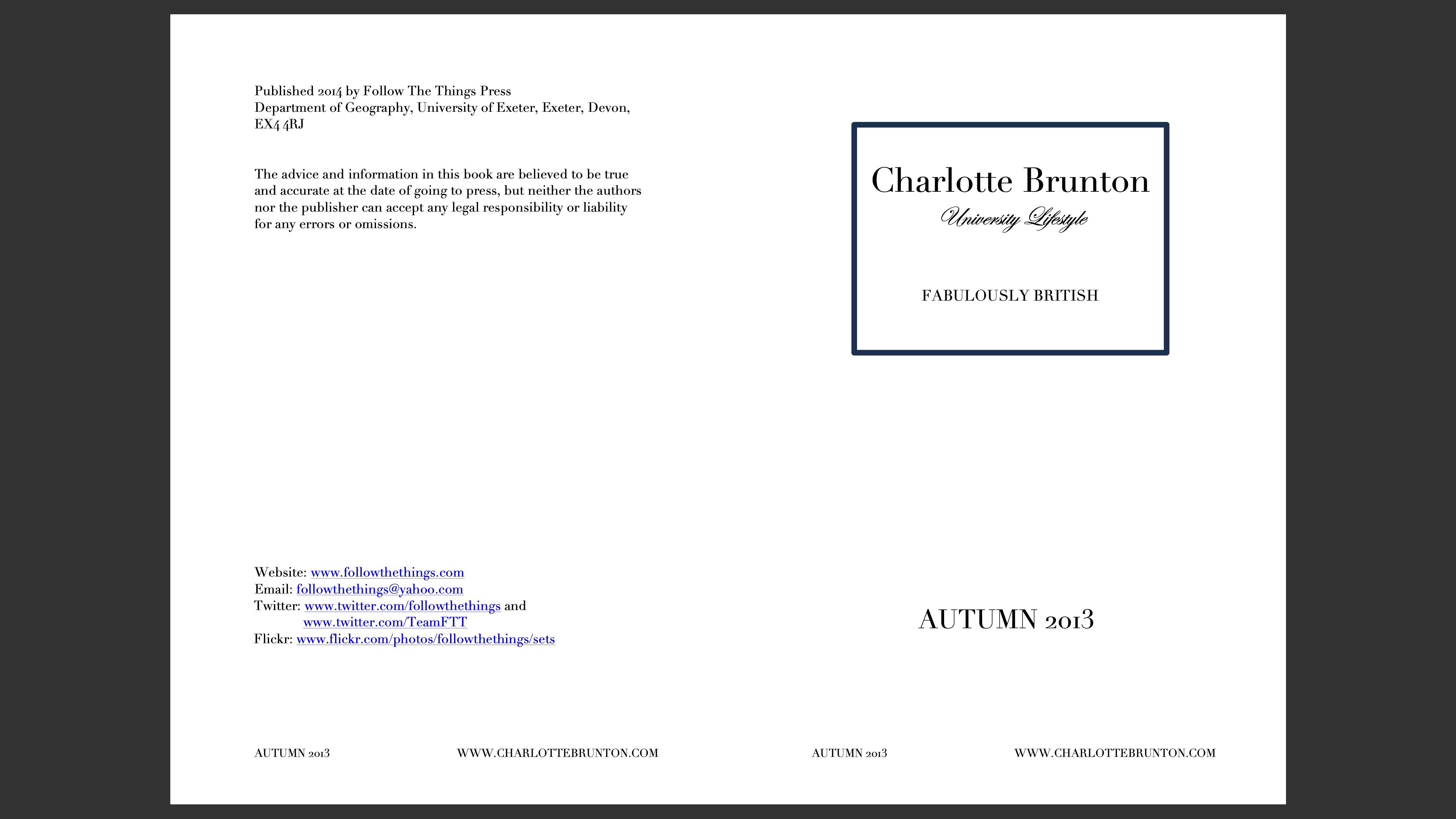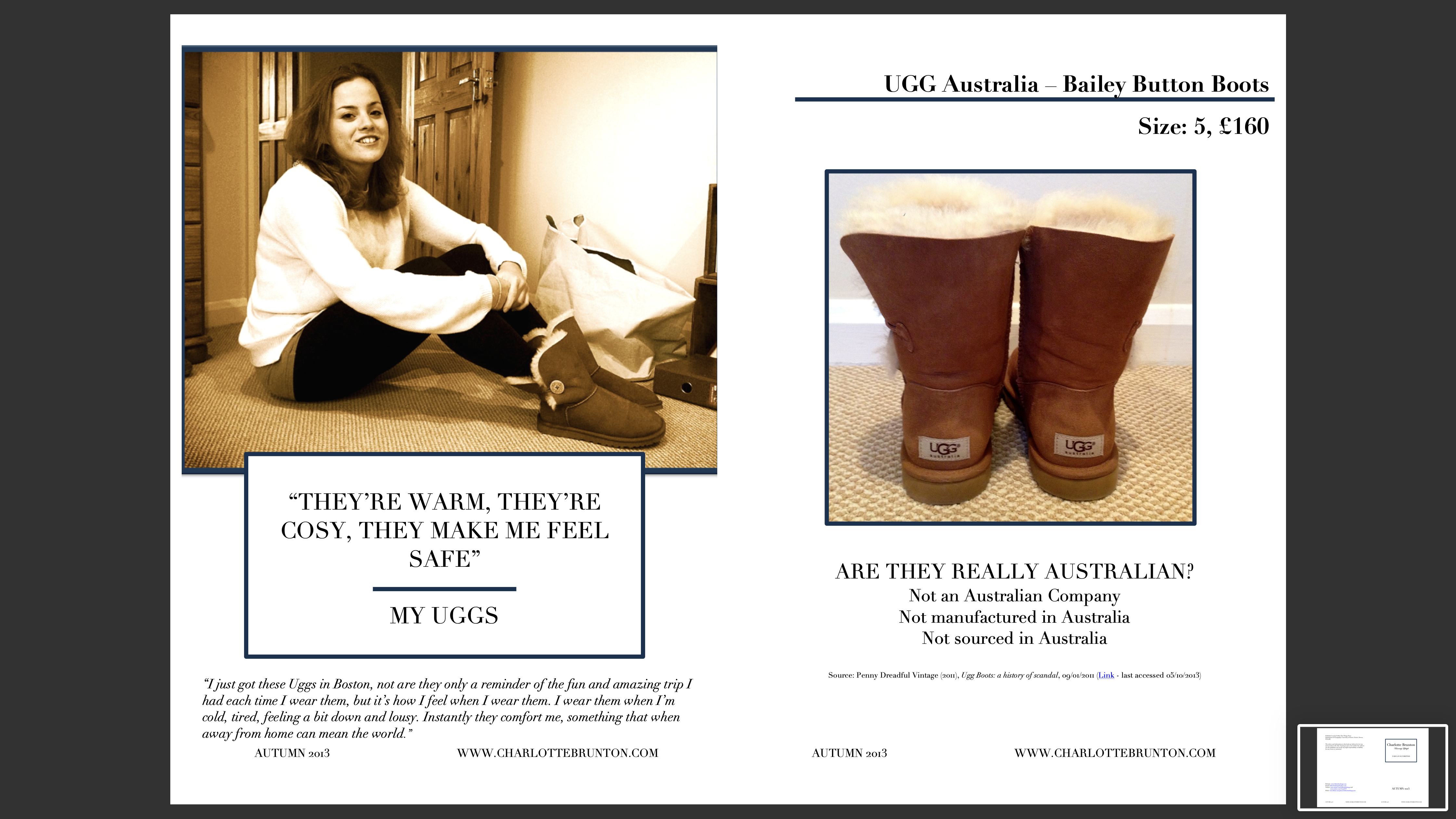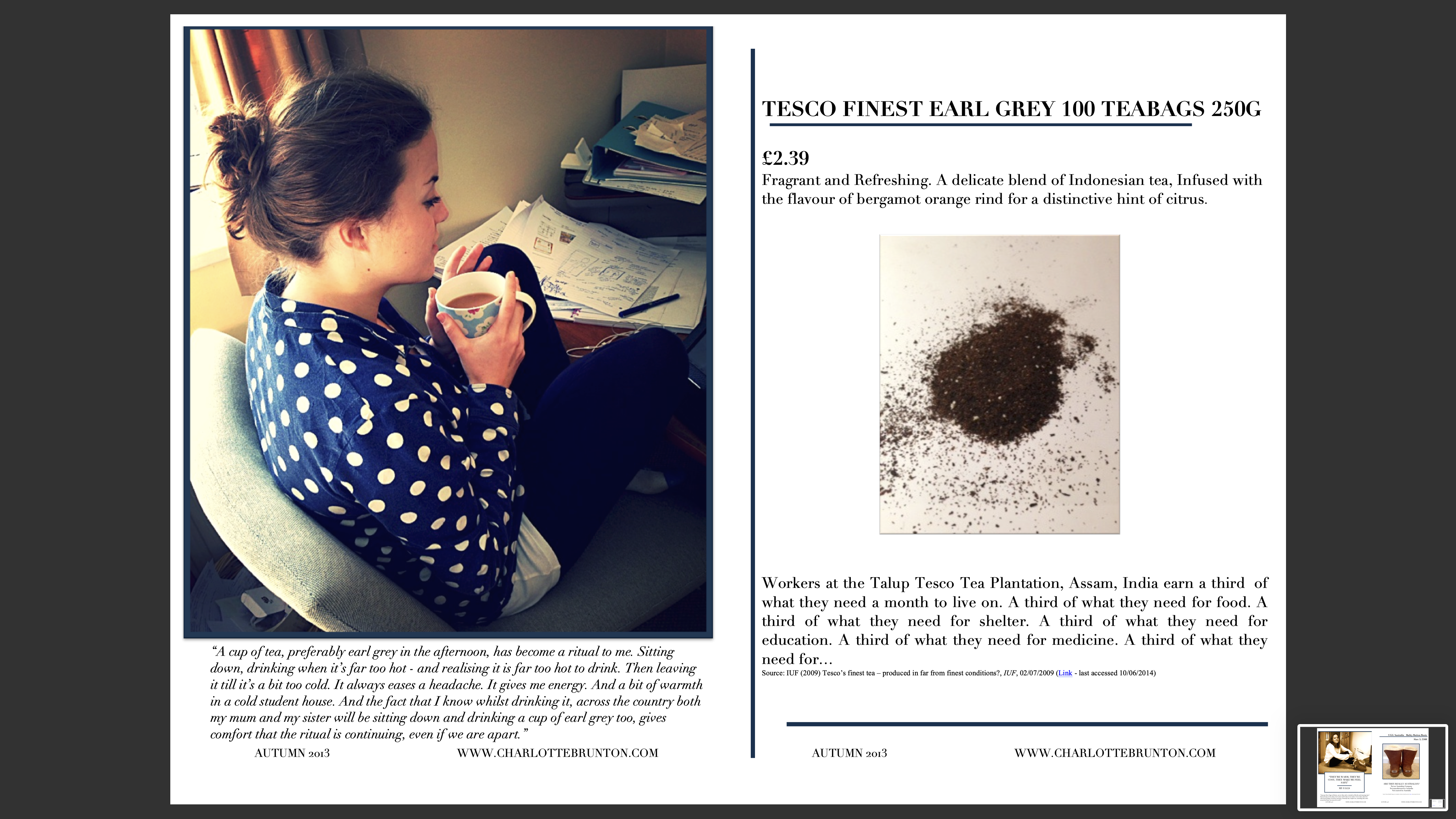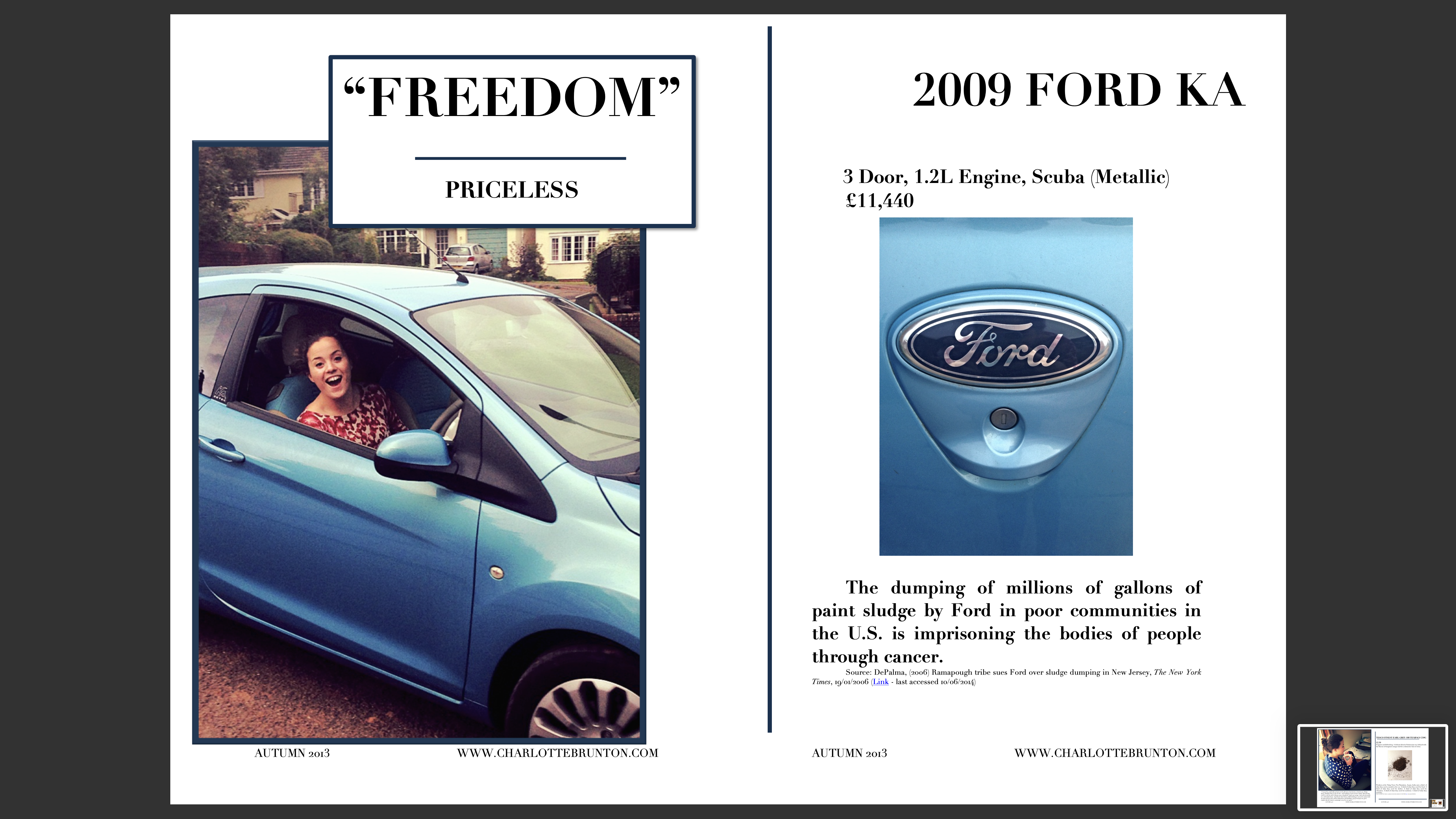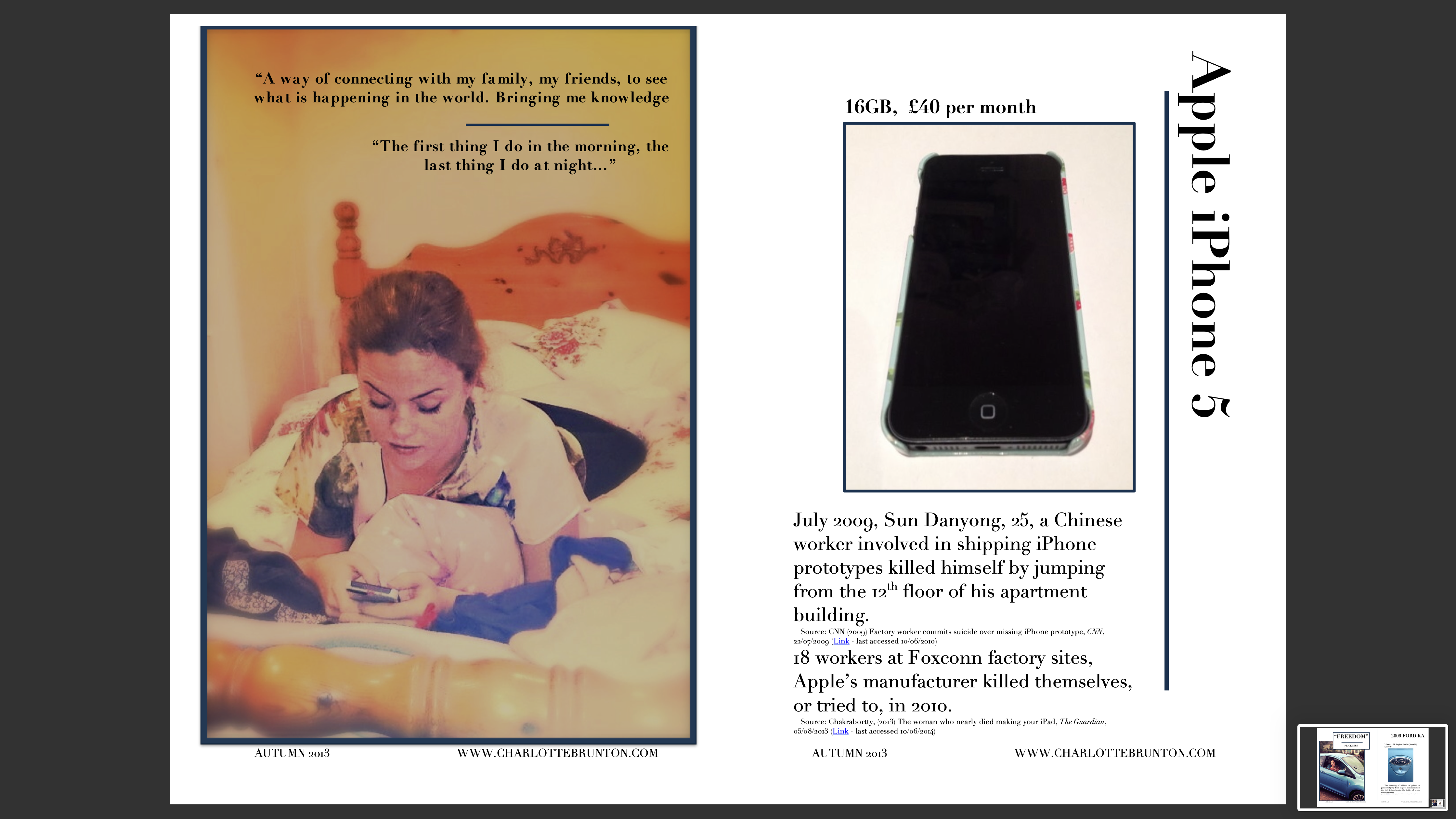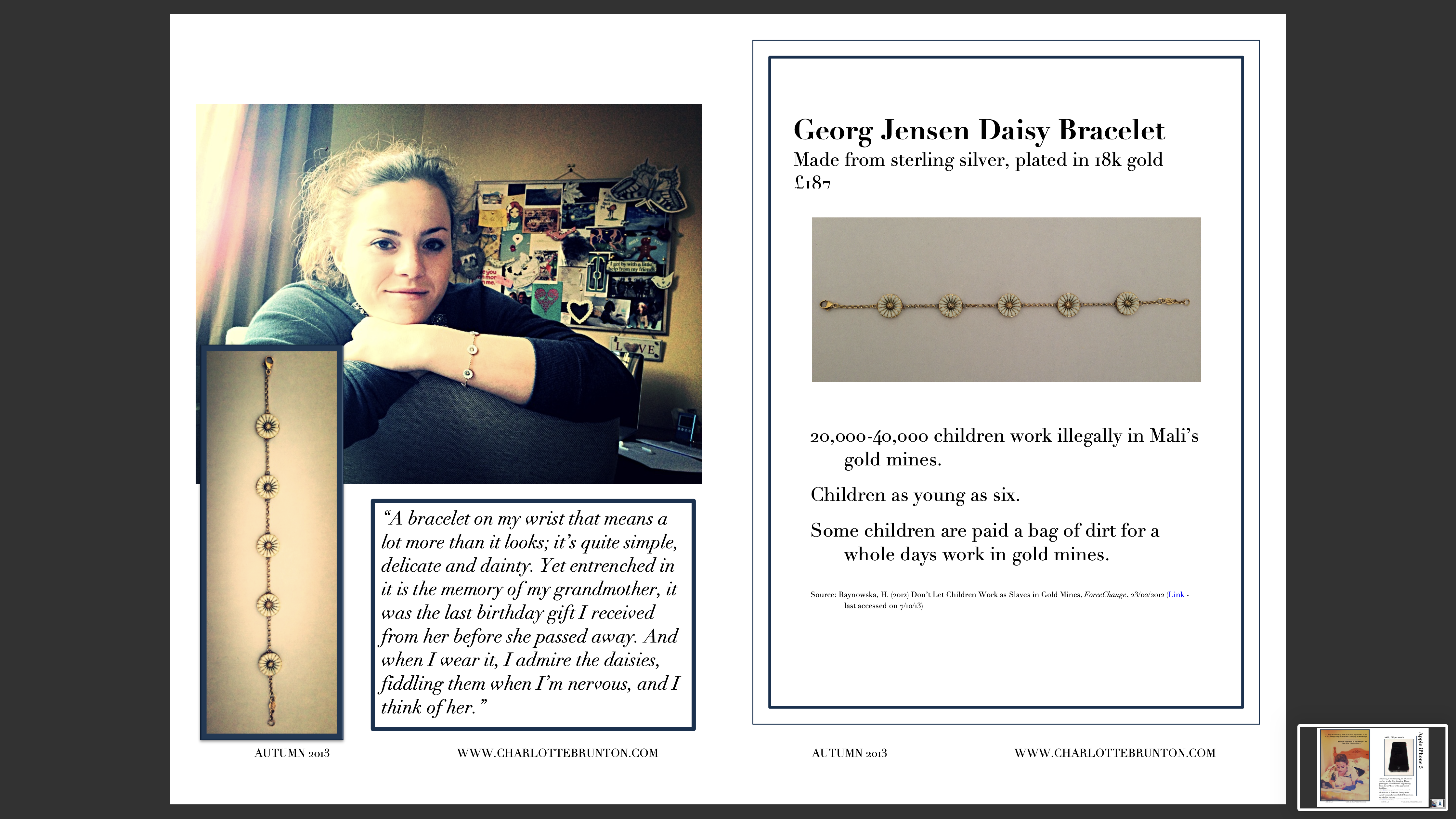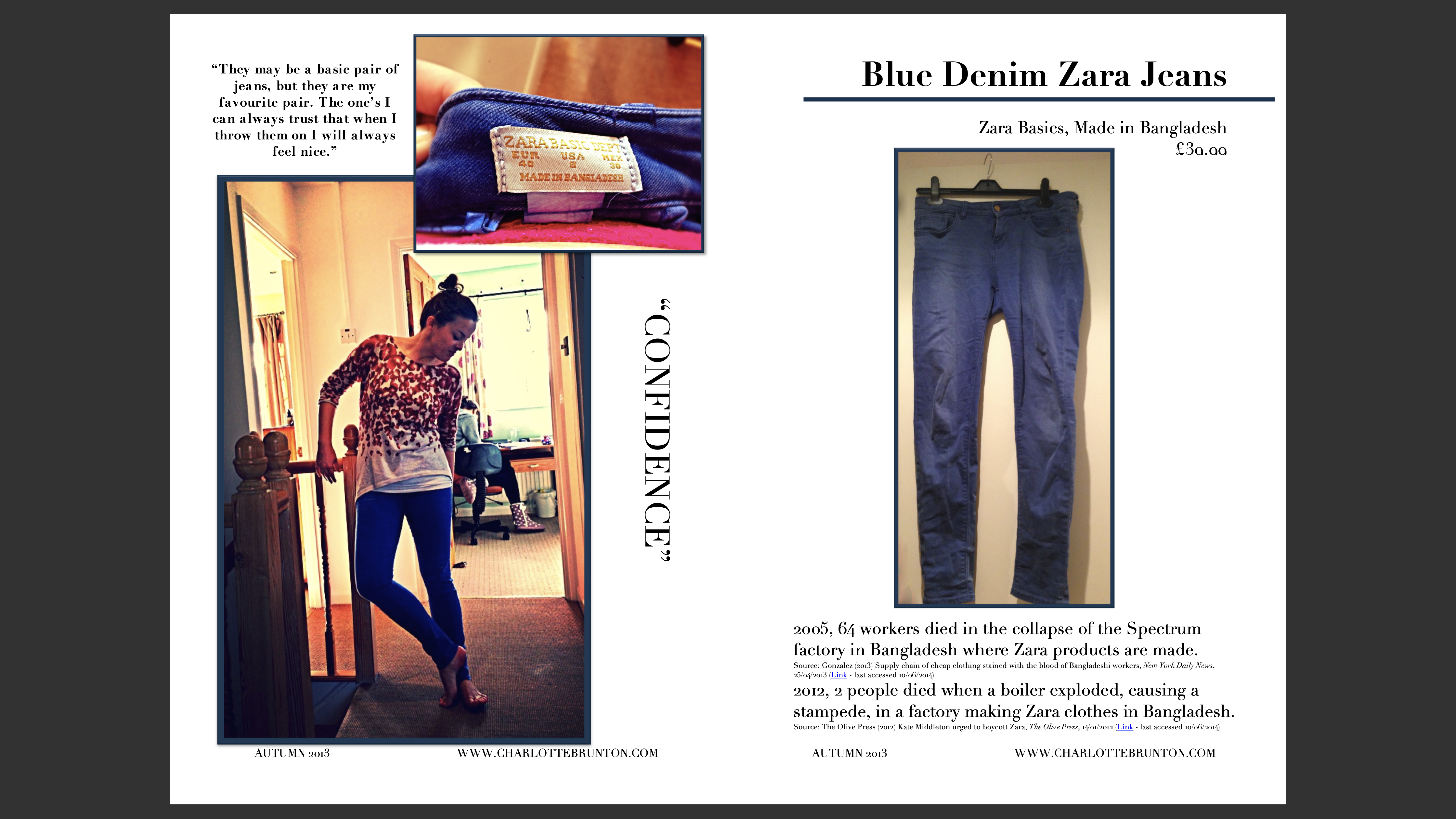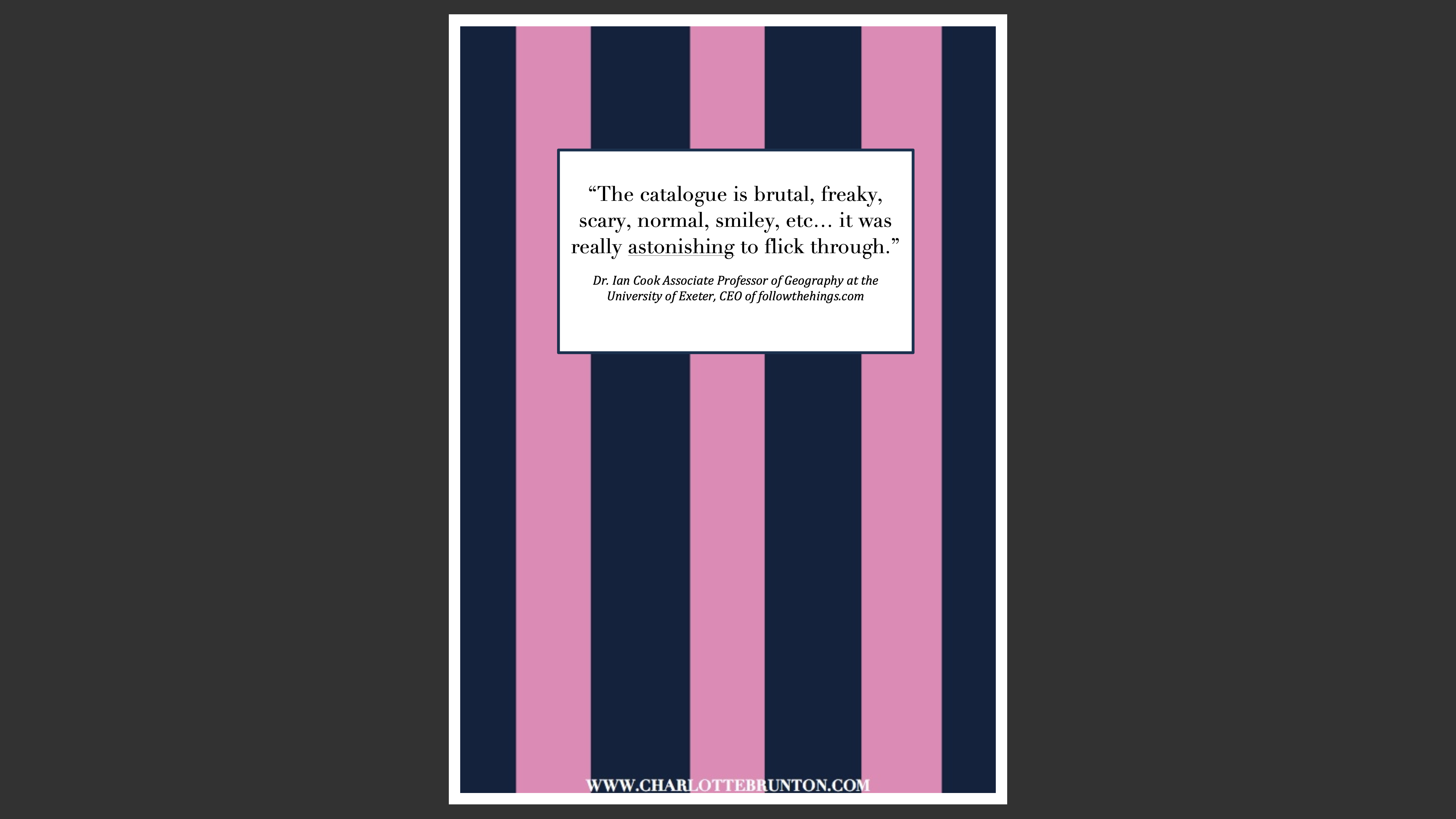
followthethings.com
Fashion | Grocery | Electronics | Home & Auto
“University Lifestyle: Fabulously British“
Undergraduate coursework designed & written by Charlotte Brunton.
Available in full in slideshow above. High resolution download available here.
After researching examples of trade justice activism to add to this site, students taking CEO Ian’s ‘Geographies of material culture’ module at the University of Exeter are tasked to make their own. Charlotte Brunton’s inspiration comes from the junk mail arriving at her student house. Instead of getting interesting letters, she and her housemates get student fashion catalogues. In particular, Jack Wills catalogues – six or more every season. They’re selling students an ‘aspirational’ lifestyle, tempting them to buy the commodities they feature. The people in them, the things they have, the carefree, stylish and connected lifestyles they picture – the designers want students to want them. Charlotte and her friends imagine themselves using this, wearing that, experiencing the lifestyles these things can support, together. But who made these things? What about their lifestyles? Charlotte asks herself how she can create a catalogue that highlights how personal these things are both to her and to the people who made them? In real life, she has an interdependent, culture-crossing, ‘British’ life which they are very much part of. So she designs a ‘lifestyle catalogue’ that you can browse to imagine and buy into with her.
Page reference: Charlotte Brunton (2014) University Lifestyle: Fabulously British. followthethings.com/university-lifestyle-fabulously-british.shtml (last accessed <insert date here>)
Estimated browsing time: 15 minutes.
Page credits & sources
Page created as coursework for the ‘Geographies of material culture’ module at the University of Exeter. Reproduced with kind permission of the author.
Sources
Castree, N. (2004) The geographical lives of commodities: problems of analysis and critique. Social and cultural Geography 5(1): 21-35
Chakrabortty, A. (2013) The woman who nearly died making your iPad. The Guardian 5 August (http://www.theguardian.com/commentisfree/2013/aug/05/woman-nearly-died-making-ipad last accessed 10 June 2014)
CNN (2009) Factory worker commits suicide over missing iPhone prototype. CNN 22 July (http://edition.cnn.com/2009/BUSINESS/07/22/china.apple.iphone.suicide/index.html?eref=rss_latest last accessed 10 June 2010)
+15 sources
Cook, I. and Woodyer, T. (2012) Live of things. in Sheppard, E., Barnes, T. and Peck, J. (eds.) The New Companion to Economic Geography. Oxford, Wiley-Blackwell: 226-241
Crang, P. (2005) The geographies of material culture. in Cloke, P., Crang, P. and Goodwin, M. (eds.) Introducing Human Geographies (2nd edition). London, Arnold: 168-181
DePalma, A. (2006) Ramapough tribe sues Ford over sludge dumping in New Jersey. The New York Times 19 January (http://www.nytimes.com/2006/01/19/nyregion/19ringwood.html?_r=0 last accessed 10 June 2014)
Foster, R. (2006) Tracking globalization: commodities and value in motion. in Tilley, C., Keane, W., Kuchler, S., Rowlands, M. and Spyer, P. (eds.) Handbook of material culture. London, Sage: 285-302
Gonzalez, J. (2013) Supply chain of cheap clothing stained with the blood of Bangladeshi workers. New York Daily News 25 April (http://www.nydailynews.com/news/world/clothing-supply-chain-stained-bangladeshi-blood-article-1.1327748 last accessed 10 June 2014)
Harvey, D. (2010) Commodities and exchange. in his A companion to Marx’s Capital. London, Verso: 15-53
IUF (2009) Tesco’s finest tea – produced in far from finest conditions? IUF 2 July (http://www.iuf.org/cgi-bin/dbman/db.cgi?db=default&uid=default&ID=6017&view_records=1&en=1 last accessed 10 June 2014)
Marx, K. (1867) Section 4: The fetishism of commodities and the secret thereof. in his Capital: Volume 1. Marx/Engles Internet Archive: www.marxists.org: 46-52
Miller, D. (2008) Consumption. in Tilley, C., Keane, W., Kuchler, S., Rowlands, M. and Spyer, P. (eds.) Handbook of material culture. London, Sage: 341-354
Penny Dreadful Vintage (2011) Ugg Boots: a history of scandal. 9 January (www.pennydreadfulvintage.com/ugg-boots-a-history-and-a-scandal/ last accessed 5 October 2013)
Raynowska, H. (2012) Don’t let children work as slaves in gold mines. ForceChange 23 February (www.forcechange.com/14833/don’t-let-children-work-as-slaves-in-gold-mines last accessed 7 October 2013)
Sandlin, J. and Milam, J. (2008) ‘Mixing pop culture and politics’: culture jamming and anti-consumption activism as critical public pedagogy. Curriculum Inquiry 38(3): 323-350
Shapton, L. (2009) Important artifacts and personal property from the collection of Lenore Doolan and Harold Morris, including books, street fashion and jewellery. London, Bloomsbury: 3-17
The Olive Press (2012) Kate Middleton urged to boycott Zara. The Olive Press 14 January (http://www.theolivepress.es/spain-news/2012/01/14/kate-middleton-urged-to-boycott-zara/ last accessed 10 June 2014)
Trapese Collective (2007) Introduction: do it yourself. in the Trapese Collective (eds.) Do it yourself: a handbook for changing our world. London, Pluto: 1-10
Cook, I. et al. (2006) Geographies of food: following. Progress in Human Geography 30(5): 655–666
Image credit
Speaking icon: Speaking (https://thenounproject.com/icon/speaking-5549886/) by M Faisal from Noun Project (CC BY 3.0) Modified August 2024
![]()

